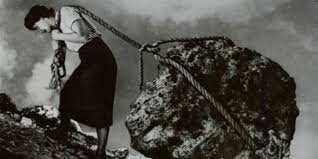NO COFFIN;NO GRAVE

He was buried without a coffin
without a grave
the scavengers performed the post-mortem
in the open mortuary
without sterilized knives
in front of the night club
stuttering rifles put up
the gun salute of the day
that was a state burial anyway
the car knelt
the red plate wept, wrapped itself in blood its master’s
the diary revealed to the sea
the rain anchored there at last
isn’t our flag red, black, and white?
so he wrapped himself well
who could signal yellow
when we had to leave politics to the experts
and brood on books
brood on hunger
and schoolgirls
grumble under the black pot
sleep under torn mosquito net
and let lice lick our intestines
the lord of the bar, money speaks madam
woman magnet, money speaks madam
we only cover the stinking darkness
of the cave of our mouths
and ask our father who is in hell to judge him
the quick and the good
Well, his dairy, submarine of the Third World War
showed he wished
to be buried in a gold-laden coffin
like a VIP
under the jacaranda tree beside his palace
a shelter for his grave
and much beer for the funeral party
anyway one noisy pupil suggested we bring
tractors and plough the land.
SHORT BRIEFS
he poem is a chronicle of events that marked the death of a traitor-ruler who was “buried without a coffin” (line 1) and whose post-mortem was carried out by scavengers, vultures in the open, outside a place where people go to celebrate and have fun. A night club! (line 6). This gives a sense that his death may have been wished and when it came, it was a necessary party for his people.
“stuttering rifles” (line 7) gave the salute when he died. The same two quoted word are used in Wilfred Owen’s poem “Anthem for Doomed Youth” where he discusses the scene before a war, intimating that the soldiers on the field are doomed to death by the shots from their own stuttering rifles. As is signal of state burials, prominent people are given a uniform salute by a regimental gunshot of a section of the army. But our politician only received a stuttering rifle’s salute, to give us a hint that his gun salute was probably the bullets that killed him; ununiformed. And confirmation reaches us, when we read that his car knelt – came to its knees, literally – in a defeatist action and wrapped itself in its master’s blood (lines 10-11). He died in his car and the car came to a grinding halt.
the colours of the Kenyan flag (red, black and white- line 14) as testament to the true nature of the politician whose deeds alone were correct. So since there wasn’t any yellow, he asks “Who could signal yellow” or contradict the politicians? After all, politics was for the “experts” while the common man was cursed to brood on books, think about schoolgirls and hunger, sleeping under torn mosquito nets (lines 15-22). And if our politician should step into a bar, he is the lord (line 24) and woman magnet (line 25) who speaks the language of money; the people’s money. And what can the cursed common man say? He can only cover the darkness of his mouth and tell his prayers to the devil for all the politician cares.
The succeeding verse tells of how our politician’s diary reveals that he wanted a stately VIP burial, with a gold-laden coffin at his palace and with so much beer. Angira earlier in line 12 says that the diary revealed itself to the sea, to say that it was found there in the sea. And now, in line 30, he calls the diary a submarine of the Third World War. This is an interesting analogy. It could mean that the diary was found in the sea as a submarine, it is content was a destructive weapon as a submarine that brought the poverty and hunger of the people, or that it had enough power in its recommendation to dump the world into a Third World War. This is beautiful use of language.
So, it has come to pass that Angira’s politician has passed away, with much celebration from his people. And with little dignity too, having been denied all the pleasantries that he wished to be accorded his death. The people care less and in the last line, one boy Angira calls noisy, even suggests that they bring tractors and plough the land, ostensibly to purge it of the desecration that this our politician’s blood may have caused it. And why is the boy even called noisy unless it means that other people have already said the same thing?
scornfully sarcastic poem by Angira(Courtsy)